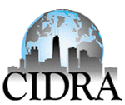Ethical Rules for International Arbitrators - 2
Ramon Mullerat OBE
FOURTH. ETHICAL OBLIGATIONS
I. In general
One of the characteristics of the liberal professions is that professionals are subject to strict ethical rules. And although a neutral 6 in ADR as such is not a professional by himself, generally the persons who act as arbitrators are also members of a liberal profession (lawyers, engineers, architects etc.).
This raises some questions. The first question consists on deciding whether the neutrals are subject to special ethical rules or they are only subject to the ethical rules of their own profession. If the answer to the first question is positive, the second is what happens when the neutrals' ethical rules and their professional rules conflict.
Traditionally, arbitrators and mediators from different professions have looked to the professional standards of their own profession. But today arbitrators have special professional standards 7 deriving from different sources not always fully coincidental. If the arbitrator due to his profession is subject in his conduct to specific ethical rules he must likewise fulfil these when acting as an arbitrator. Generally, most of the ethical rules - as an arbitrator or as a professional - will not differ (i.e.: professional confidentiality or secrecy). But should there be a conflict of rules, it seems to me that the rules applying as an arbitrator should prevail.
Ethical rules arc particularly relevant for arbitrators because arbitration is based on trust 8 .
II. Ethical standards for all neutrals
In regard to the US, the Ethical Standards of Professional Conduct for members of the Society of Professionals in Dispute Resolution 1987 provide (General Responsibilities) that neutrals have a duty to the parties, to the profession and to themselves. They should be honest and unbiased, act in good faith, be diligent, and not seek to advance their own interests at the expense of the parties. They impose to neutrals the following responsibilities to the parties: impartiality, informed consent, confidentiality, conflict of interest, promptness and settlement and its consequences.
As John Cooley 9 put it, the ADR profession leaders should define the ADR practitioner's professional and ethical role in relation to the judicial rather that the lawyer's role. The judicial role is a much more appropriate than the lawyer role. First, when performing their judicial role (which includes applying law to facts and assisting with the drafting of settlement agreements), judges are not practicing law. Second, both lawyers and non-lawyers serve in the judicial capacity. Indeed, being a lawyer is not even a requisite qualification to serve on the US Supreme Court. Although the ABA's Ethics 2000 Commission introduced changes to the ABA's Model Rules of Professional Conduct for Lawyers, there is currently no similar study being undertaken with respect to the ABA Model Code of Judicial Conduct. ADR profession leaders should take an active role in urging the study and revision of the ABA Model Code of Judicial Conduct, first to modernize the judicial role to include standards relating to judges1 evolving ADR functions; and second, to consider the inclusion of new canons specially addressing the neutral roles of lawyers and non-lawyers in the various ADR processes.
6 Some US rules (f.i. the Society of Professionals in Dispute Resolutions Standards or SPIDR) generically refer to mediators and arbitrators as "neutrals". back
7 Allan Scott Rau, Edward F. Sherman and Scott R. Poppet, Processes of Dispute Resolution, third edition, 2002, p. 532, with regard to mediation. back
8 Juan Eduardo Figueroa, "Ethical in international arbitration", Mealey's International Arbitration Report, My 2003, p. 41. back
9 John Cooley: "Shifting paradigms: the unauthorized practice of law or the authorized practice of ADR". back
